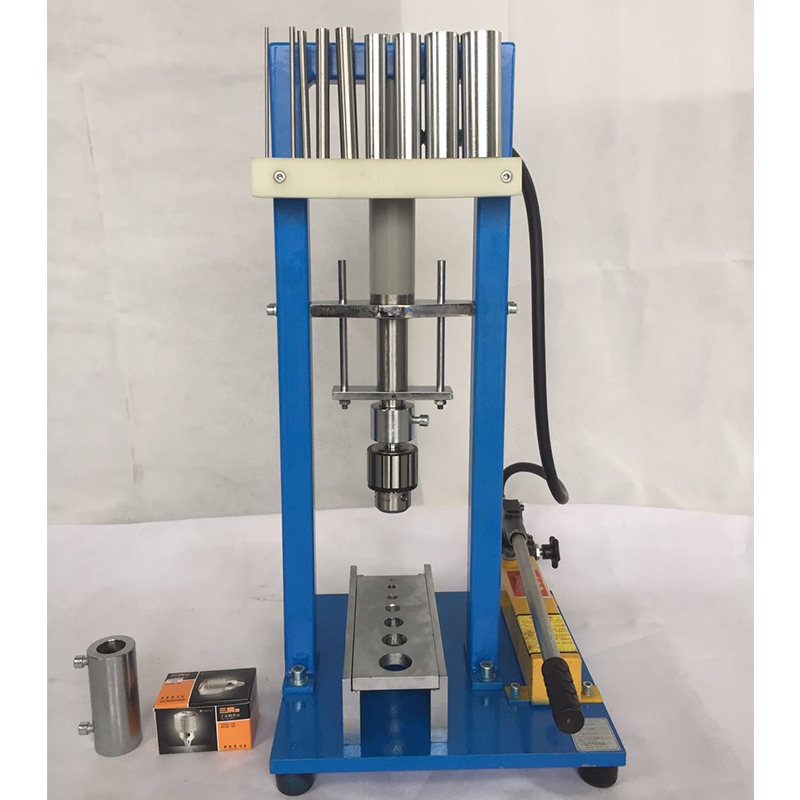Custom Clamps for Enhanced Performance in Tensile Testing Applications
Custom Clamps for Tensile Testers Enhancing Precision and Performance in Material Testing
In the realm of material science and engineering, tensile testing stands out as a fundamental procedure for determining the mechanical properties of materials. This critical test provides vital data on how materials behave under tension, such as tensile strength, yield strength, and elongation. A key component of this testing process is the use of clamps, which secure the sample material during the test. To enhance accuracy and efficiency, many laboratories are turning towards custom clamps designed specifically for their unique testing needs.
Importance of Custom Clamps
Standard clamps for tensile testers may not meet the specific requirements of every material or testing scenario. Custom clamps are designed to accommodate unique geometries, sizes, and material properties, ensuring that the sample is held securely without causing any damage that could skew test results. By developing bespoke solutions, laboratories can achieve better grip, minimize slippage, and reduce the risk of failures that can occur with off-the-shelf options.
For instance, softer materials such as polymers or elastomers require a different clamping approach compared to metals, which may require higher grip forces without deformation of the sample. Custom clamps can be engineered with different jaw designs, materials, and coatings to optimize the grip on the sample while preventing surface damage or stress concentrations that might alter the outcome of the test.
Design Considerations
When creating custom clamps, several critical factors must be considered
1. Material Compatibility The choice of materials for clamps is crucial. They should be robust enough to withstand the forces encountered during testing yet gentle enough to avoid damaging the sample. Common materials include high-strength aluminum and hardened steels, often coated for additional protection.
2. Jaw Design The shape and surface texture of the jaws play a significant role in grip efficiency. Textured surfaces can enhance friction, while specific geometrical designs can accommodate the unique shapes of various samples. Some clamps may even feature a conforming design that adapts to the sample's contour.
3. Ease of Use Custom clamps should be user-friendly and easy to attach and detach from the testing machine. Ergonomic considerations often dictate the design, allowing operators to quickly secure samples without excessive force.
custom clamps for tensile testers

4. Size and Adjustability Since samples can vary widely in size and shape, custom clamps may include adjustable elements to accommodate different dimensions. This versatility ensures that laboratories can test a broad range of materials without needing multiple clamp sets.
5. Data Integrity When designing custom clamps, it is essential to consider how the clamps will interact with force measurement systems. The clamps should minimize any interference with the force-displacement data collected during the test.
Benefits of Custom Clamps
Implementing custom clamps provides numerous advantages that contribute to the overall efficiency and effectiveness of tensile testing. These include
- Improved Accuracy By securing samples more effectively, custom clamps reduce the risk of slippage and misalignment, leading to more reliable and reproducible results.
- Enhanced Safety Properly designed clamps minimize the risk of sample breakage, which could pose hazards to operators and equipment.
- Tailored Solutions Laboratories often have varying testing needs based on their specific projects. Custom clamps allow facilities to tailor their equipment to their exact requirements, rather than adapting their materials to fit generic solutions.
- Cost-Effectiveness While the initial investment in custom clamps may be higher, the longevity and reliability of a well-designed clamp can lead to reduced maintenance costs and the elimination of costly testing errors.
Conclusion
Custom clamps for tensile testers represent a pivotal advancement in the field of material testing. By focusing on specific requirements and challenges faced by laboratories, these tailored solutions enhance the accuracy, safety, and efficiency of tensile testing procedures. As the demand for precise material characterization continues to grow, the development and utilization of custom clamps will undoubtedly play a significant role in advancing material science and engineering research. For laboratories looking to optimize their testing capabilities, investing in custom clamping solutions is not merely an option but an essential step towards achieving superior results.
-
Why the Conductor Resistance Constant Temperature Measurement Machine Redefines Precision
NewsJun.20,2025
-
Reliable Testing Starts Here: Why the High Insulation Resistance Measuring Instrument Is a Must-Have
NewsJun.20,2025
-
Flexible Cable Flexing Test Equipment: The Precision Standard for Cable Durability and Performance Testing
NewsJun.20,2025
-
Digital Measurement Projector: Precision Visualization for Modern Manufacturing
NewsJun.20,2025
-
Computer Control Electronic Tensile Tester: Precision and Power for the Modern Metal Industry
NewsJun.20,2025
-
Cable Spark Tester: Your Ultimate Insulation Assurance for Wire and Cable Testing
NewsJun.20,2025
 Copyright © 2025 Hebei Fangyuan Instrument & Equipment Co.,Ltd. All Rights Reserved. Sitemap | Privacy Policy
Copyright © 2025 Hebei Fangyuan Instrument & Equipment Co.,Ltd. All Rights Reserved. Sitemap | Privacy Policy
